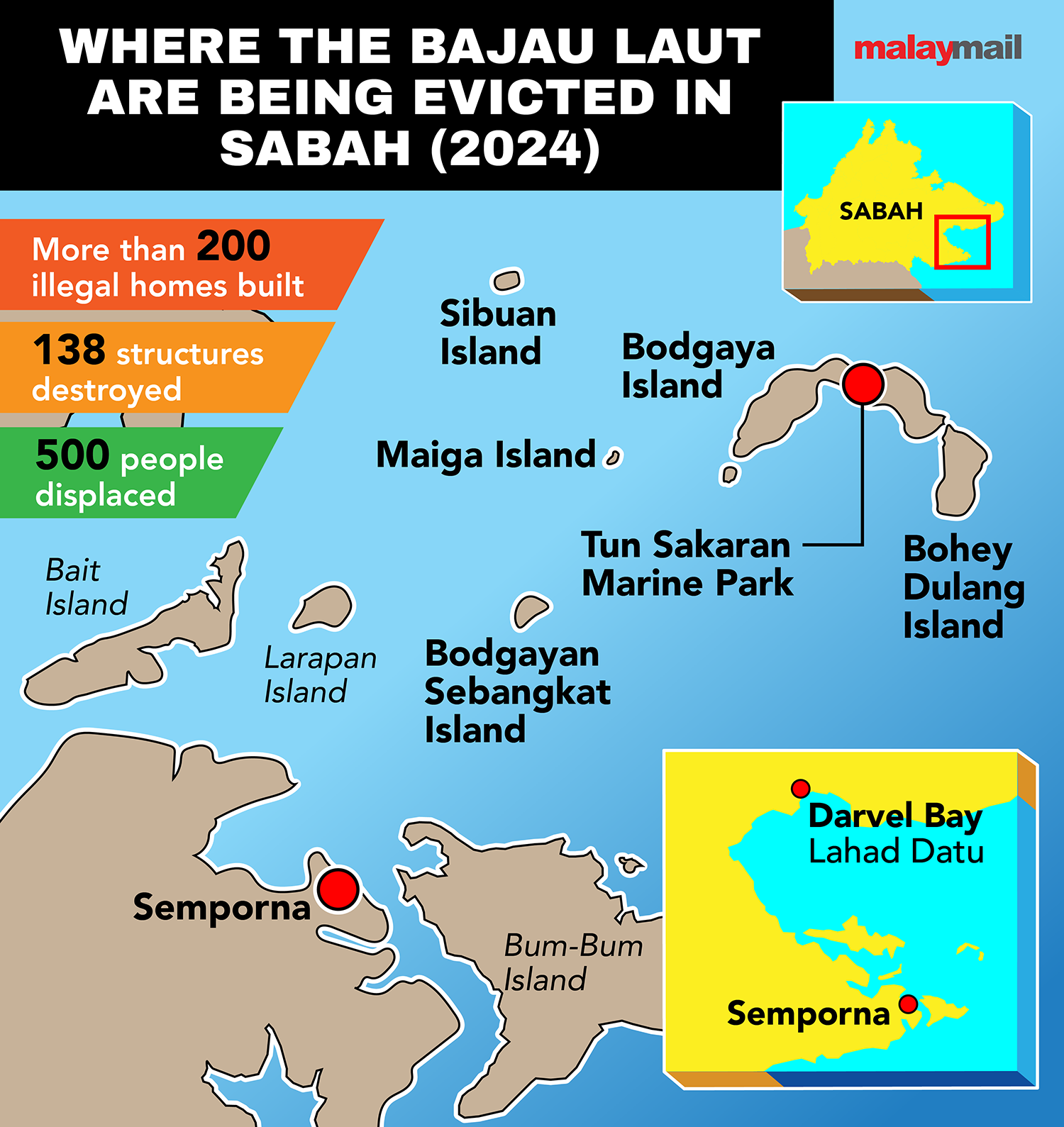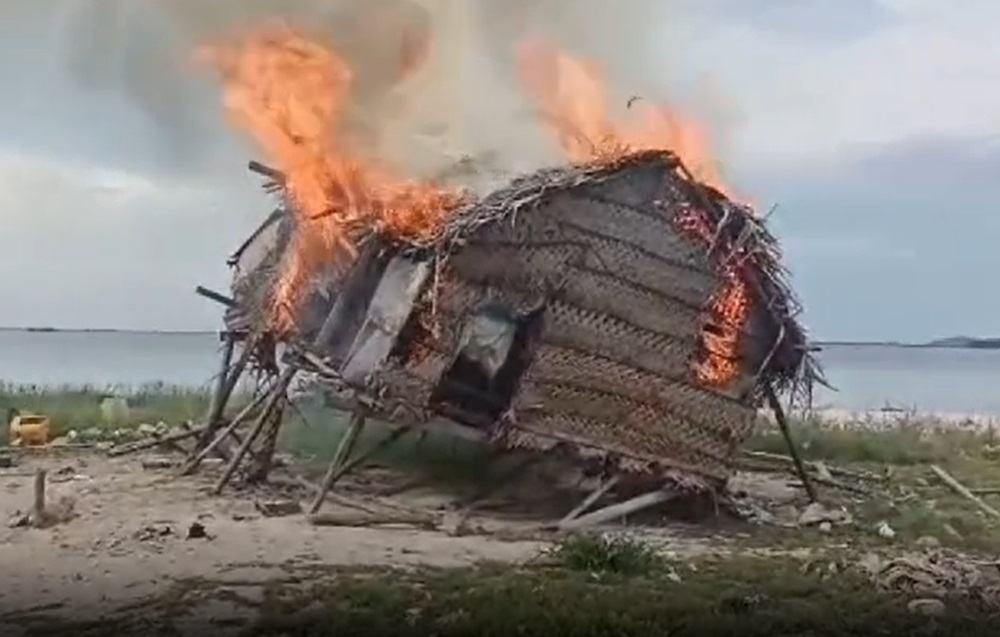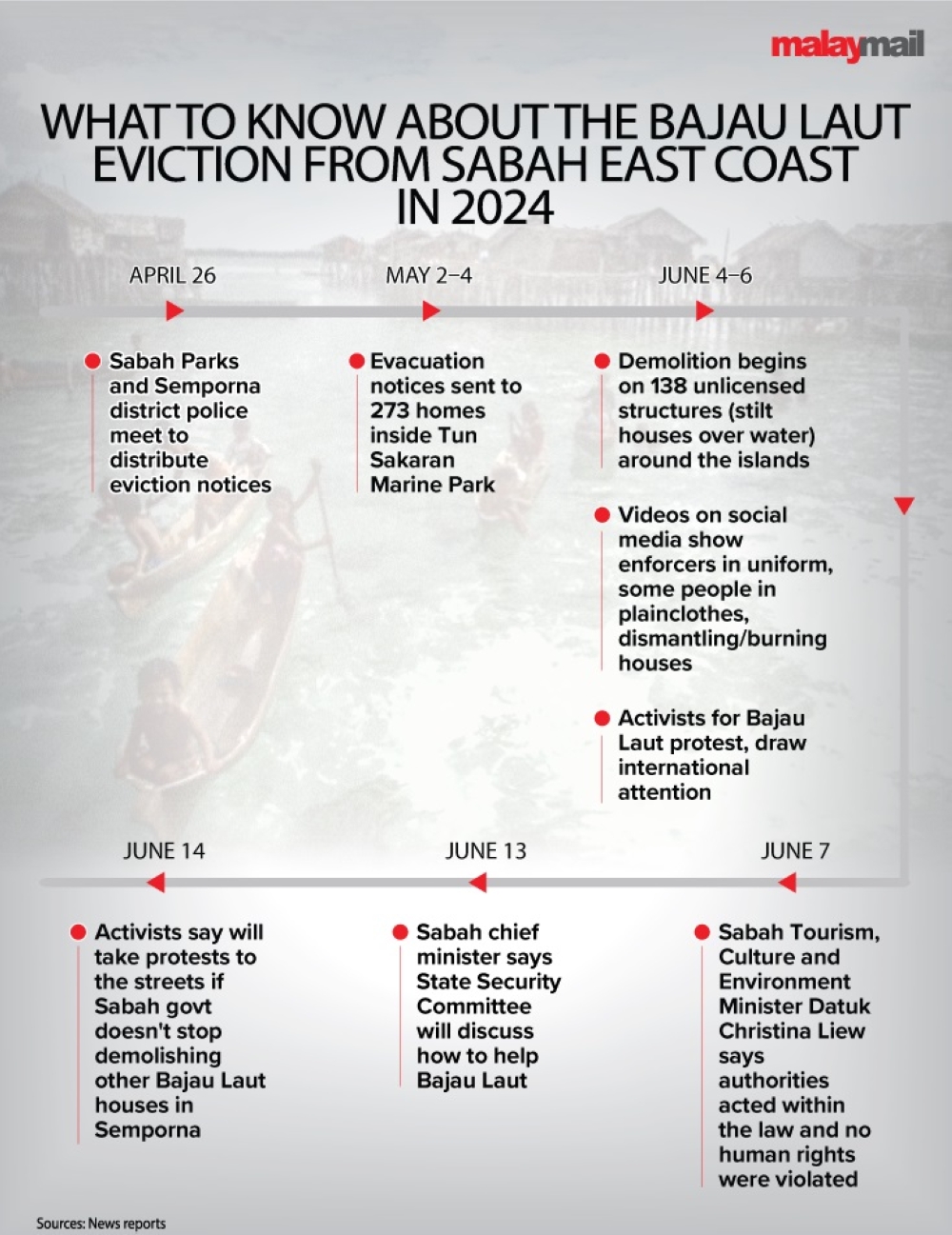KOTA KINABALU, June 30 — Advocates for the Bajau Laut in Sabah whose houses were demolished in a recent “evacuation” exercise have defended the community’s right to build homes on the east coast near Semporna.
Mukmin Nantang of the Sabah-based non-governmental organisation Borneo Komrad told Malay Mail that native customs allow the Bajau Laut, also known as the Sulu sea nomads that right, adding that it dates back decades and definitely before the Tun Sakaran Marine Park was gazetted in 2004.
“I was recently on Pulau Bodgaya on a fact-finding mission and we found that the local Suluks had identification and had lived on the island for decades, planting mangoes and coconuts even before the park was gazetted.
“The names of the residents are listed in the formation of Tun Sakaran Marine Park. They have ancestral graves there and have evidence of trees planted decades ago. This is strong cultural evidence. They also have complete documents proving they have long inhabited the place,” he said, citing provisions on native customary rights according to the Parks Enactment.
Mukmin’s comments were in reply to Sabah Tourism, Culture and Environment Datuk Christina Liew defence of law enforcement following the June 4–6 demolition of 138 structures built by the Bajau Laut that the state considers illegal.
Mukmin said that Liew’s denial of human rights breaches was narrow minded and did not take in the whole picture.

“The minister’s statement makes it sound like this is a new large-scale deforestation. In reality, the forest is very dense, and their gardens are very small. The size of a Musang King durian orchard is thousands of times larger than their tiny gardens at the foot of the hill,” he said.
He also rejected Liew’s assertion that the villagers burnt down their own homes when the authorities left.
“Where is the logic in someone wanting to burn their own house? Doesn’t make sense. Look at this video,” Mukmin said, and showed a video of plainclothes men with the police pushing down a house on stilts, which then cut away to show the structure in flames while speed boats, presumably belonging to the authorities, were anchored nearby.
“The house is burning while the enforcers are still there. Their boats are still there. You can even hear the machines whirring from other homes being demolished,” Mukmin continued.
The video did not show who torched the stilt houses.
Under fire from rights activists, Liew told reporters on June 7 that the authorities were acting within their rights for security reasons after serving an “evacuation” notice on the Bajau Laut home owners.

She said that police sources claimed the residents burnt their own homes to gain public sympathy on social media.
“They have always used security and cross border issues as an excuse to deprive this community from before. But they are a native tribe with native customs who have been living this way for generations.
“The Parks Enactment has provisions to recognise the existing native customary communities and not to disturb it, but this has not been respected,” Mukmin said.
Mukmin, who has been studying Sabah’s Bajau Laut community since 2015, has invited Liew to debate the issue openly with facts and data that he said would help let the public assess the issue more fairly.
“The Bajau Laut and Suluk are not undocumented migrants. They are natives and indigenous people in Sabah. There are countless studies and historical evidence supporting this. Numerous global and local researchers have studied them. The fact that no one was arrested when their homes were demolished and burnt showed how they are disregarded by the government,” he said.
“Their way of life has been encroached upon for a long time. They were forced to move to the land. Now, their lives are being destroyed again, and they are not provided with alternative shelters. Where are they supposed to go?” he asked.

News of the demolishing of the Bajau Laut settlements last week sparked controversy.
Some activists condemned the state for its inhumane and disrespectful actions towards the Bajau Laut while others insisted that authorities had acted within the law.
The sea faring and nature-driven Bajau Laut community in Saha is rooted in traditional customs, and is mostly sidelined from development, offering no access to infrastructure, education or identification.
Recommended reading:






















